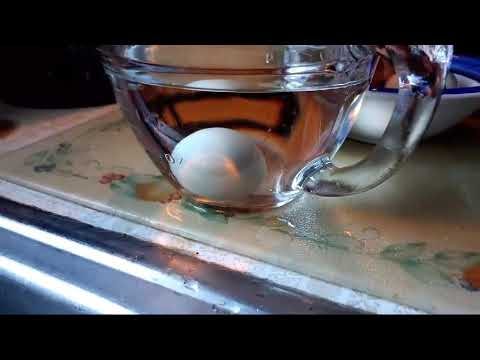While egg prices keep going higher, their quality may be going lower! This is an easy way to test your eggs before cracking or cooking them.
If you gently place an egg in a glass of water, it sinks if it is fresh but floats to the top if spoiled because the air sac (air cell) in an aged dried egg slowly expands and fills with more oxygen.
When an egg is laid by a hen, it is warmer than the air, and as it cools, the material inside the egg shrinks and pulls the two membranes apart, leaving behind an air cell (or air sac), that is filled with oxygen needed for sustaining life (in a fertilized egg). Because there are pores in an egg shell, older eggs gradually lose moisture and replace it with ambient air so the air sac grows, lowering the egg density and causing it to float.

But even if the egg passes the freshness test, it doesn’t mean it’s the best quality. Most eggs today are from machine-incubated chicks raised in caged clusters (without roosters so not fertilized) and not pasture-raised. To learn more about eggs, please read my two other articles (linked below) about egg colors, nutrition, types, and little-known industry secrets and gimmicks (Much of this information is confirmed as my first-hand knowledge):
Can Egg Yolks Fight COVID? Are All Eggs Created the Same? Eye-Opening Facts about Eggs
I also discuss the topic in detail in my recent book The Right Way to Eat: A Handbook About Wholesome Food.





